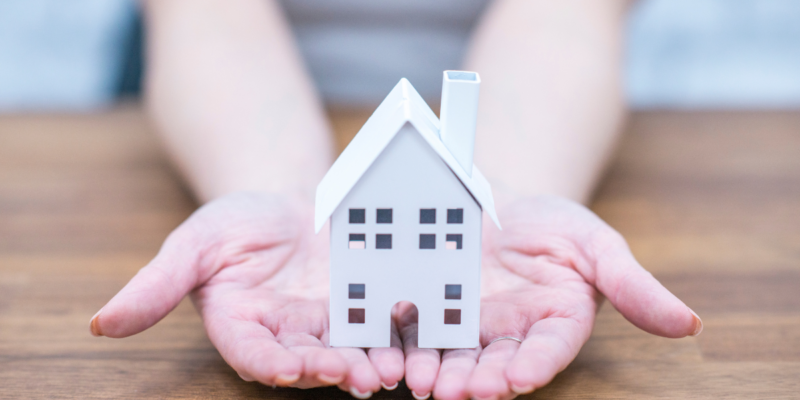
When it comes to buying a second home, there is no one-size-fits-all answer. Everyone’s circumstances, aspirations, and risk tolerance vary, making the decision highly personal and subjective. As you weigh the pros and cons of buying a second home, consult with financial advisors and real estate experts to gain valuable insights that align with your unique situation.
Imagine waking up to the sound of gentle waves crashing against the shore or stepping onto a picturesque balcony with breathtaking mountain vistas stretching before you. The allure of a vacation home, a personal oasis away from the mundane routines of everyday life, is undoubtedly captivating.
For those fortunate enough to consider buying a second property, having a cherished retreat to escape whenever the heart desires is undeniably appealing. However, beneath this enchanting facade lie essential considerations that can either transform this dream into a reality worth cherishing or become a financial and emotional burden.
Whether you are yearning for your slice of paradise or assessing the viability of a second property investment, understanding the intricacies of owning a vacation home is paramount. So, let us venture forth and weigh the scales to determine whether buying a vacation home is truly a blissful escape or a path that requires caution.
Table of Contents
Pros of Buying a Second Home
Listed below are some of the most compelling reasons why buying a second home can be beneficial and fulfilling. However, it is important to remember that everyone’s financial situation and goals may vary, so careful consideration and planning are essential before making this significant investment.
Pro 1 -Vacation Getaway:
Owning a second home gives you a dedicated vacation retreat. You can escape to your favourite destination whenever you need a break, without worrying about booking accommodations or availability.
Pro 2: Potential Rental Income:
If you are not using the property year-round, you can rent it out as a vacation rental
Pro 3: Real Estate Investment:
A second home can be a long-term investment. The property’s value may appreciate over time, providing you with potential financial gains if you decide to sell.
Pro 4: Tax Benefits:
Depending on the existing laws, owning a second home may offer certain tax advantages
Pro 5: Family Gatherings:
A second home offers ample space for hosting family reunions and catchups with close friends
Pro 6: Familiarity and Comfort:
Your second home becomes a comfortable space, eliminating the need to adapt to new environments during vacations
Pro 7: Retirement Retreat:
Many people purchase a second home for their retirement years
Pro 8: Diversification of Assets:
Investing in real estate diversifies your asset portfolio beyond traditional stocks and bonds, which can provide stability in times of market fluctuations
Cons of Buying a Second Home
Buying a second home can be rewarding, but it is essential to consider the responsibilities and potential challenges that come with this investment.
Con 1: Financial Burden:
Owning a second home involves additional costs such as home loan payments, property taxes, insurance, maintenance, and utilities. You must bear these expenses yourself throughout the year, if the property is not rented out.
Con 2: Time and Effort:
Managing a second home can be exhausting, especially if it is far from your primary residence. Regular maintenance, repairs, and dealing with rental logistics (if applicable) can be time-consuming and stressful.
Con 3: Vacancy and Rental Challenges:
Continuous occupancy is not guaranteed if you plan to rent out the property. Off-peak seasons or unexpected economic downturns can lead to vacancies, affecting potential rental income.
Con 4: Market Fluctuations:
The real estate market is subject to ups and downs, and the value of your second home may not always appreciate as expected. Economic downturns or changes in the local market can impact its resale value.
Con 5: Emotional Attachment and Stress:
Purchasing a second home can lead to emotional attachment, clouding financial judgment. Worries about the property’s condition, security, and management can also stress your life.
Con 6: Limited Usage:
Depending on your lifestyle and commitments, you may not be able to use the second home as frequently as desired. This can make the investment less rewarding, especially if it remains vacant for extended periods.
Con 7: Property Management Costs:
If you do not live near your second home, hiring a property management company becomes necessary. Their fees can eat into potential rental income or add to your overall expenses.
8. Con 8: Unforeseen Expenses:
Owning a property comes with the risk of unexpected expenses. Repairs from natural disasters, damage caused by tenants, or unexpected maintenance issues can strain your finances.
Con 9: Opportunity Cost:
The money tied up in a second home could have been invested elsewhere for higher returns. Missing other investment opportunities is an opportunity cost to be considered, before you take the final decision to buy the property.
Con 10: Regional and Local Risks:
The second home’s location may be susceptible to specific risks, such as natural disasters, economic changes, or shifts in tourism patterns. These factors can impact property value and potential rental income.
Before purchasing a second home, carefully weigh these potential drawbacks against the benefits to make an informed decision that aligns with your financial goals and lifestyle.
Factors to Consider Before Making a Purchase
Before purchasing or buying a second or vacation home, consider some of the following factors to ensure you make an informed decision:
-
Financial Readiness:
Evaluate your current & future financial situation, including income, savings, and outstanding debts. Assess if you can easily manage down payment, monthly loan payments, property taxes, insurance, and maintenance costs associated with buying a second property.
-
Purpose and Usage:
Ensure that the purpose of buying a second home is abundantly clear. Will it be solely for personal use as a vacation retreat, or do you intend to generate rental income? Understanding its primary usage will influence the location and type of property you should consider.
-
Location:
Choose a location that aligns with your lifestyle preferences and investment goals. Research the area’s real estate market, growth prospects, proximity to amenities, and potential for property appreciation.
-
Rental Income Potential:
If you plan to rent out the property, assess the rental demand in the area, average rental rates, and occupancy rates. Consider tourism seasonality, local attractions, and competition from other rental properties.
-
Long-Term Goals:
Align the purchase with your long-term financial goals. Evaluate how the second property fits into your overall investment portfolio and whether it complements your retirement or wealth-building plans.
By thoroughly assessing these factors, you can make a well-informed decision about purchasing a second or vacation home that aligns with your financial objectives and enhances your lifestyle.
Final Thoughts
Owning a vacation home promises an escape to idyllic getaways, a sanctuary to create cherished memories, and the potential for financial gain through rental income & property appreciation. However, it also demands carefully evaluating the associated responsibilities, financial commitments, and potential risks.
On the one hand, the allure of having a personal retreat, a place to call your own amidst breathtaking landscapes, and the joy of hosting memorable family gatherings is undeniably enticing. The prospect of diversifying your investment portfolio and benefiting from certain tax advantages adds further appeal, making vacation homes an attractive proposition for those with the means and vision.
Yet, on the other hand, the financial burden of home loan payments, maintenance costs, and property management can cast a shadow on the dreamlike facade. Market fluctuations and unexpected expenses can challenge the financial prudence of this venture, while the emotional attachment and stress tied to property management may dampen the enchantment of owning a second home.
The key to making a well-informed decision lies in striking a delicate balance between desire and practicality. Before purchasing a vacation home, it is essential to assess your financial capabilities, evaluate your long-term goals, and thoroughly research the potential real estate market. Consider how frequently you will use the property, whether you intend to rent it out, and the feasibility of managing it from a distance.
Whether you unlock the magic of owning a vacation home or savour the beauty of diverse destinations through other means, cherish the journey. The value of owning a second property extends beyond financial returns. It lies in the joy of experiencing new places, creating lasting memories with loved ones, and finding solace in a home away from home.
Investment Opportunity In India
Apartments for Sale in Bangalore
FAQ’s
1. Is it wise to invest in a second house?
It can be wise to invest in a second house if you have a stable financial situation & clear goals, and plan to use the property for personal enjoyment or rental income. Before taking a final decision, consider factors like location, market conditions, and potential expenses
2. What are the disadvantages of a second home loan?
Disadvantages of a second home loan include increased financial burden due to additional loan payments, interest costs, and potential risks of default if rental income falls short. Additionally, loan eligibility criteria may be stricter for a second home loan, especially if you have existing loans that are a long way from closure.
3. What is the benefit of a second house?
The benefits of a second house include having a dedicated vacation getaway, potential rental income, long-term real estate investment, tax advantages, and a space for hosting family gatherings & creating lasting memories.
4. Is buying a second home a good investment in India?
Buying a second home can be a good investment in India if you carefully research the market, choose a location with potential for appreciation, and manage financial responsibilities. However, consider your financial goals and risk tolerance before making the decision.
5. Should I buy a second home or invest in stocks?
Whether you buy a second home or invest in stocks, the decision depends on your financial objectives, risk appetite, and preference for real estate or equity markets. Stocks offer liquidity and potentially higher returns, while a second home provides tangible assets and non-monetary benefits.
6. When to buy a second property?
The right time to buy a second property depends on your financial readiness and market conditions. Before deciding, consider factors like affordability, stable income, favourable interest rates, and property market trends.







